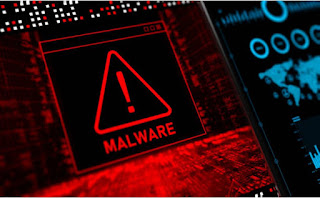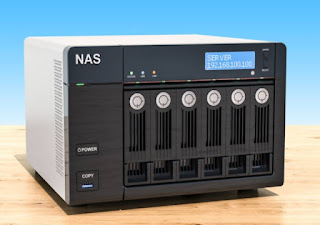Information Security
Information is vital for every company. Information Security is
the most difficult job in any organization. Information Security is Information Security on the
Internet.
Today's productivity and competitiveness improvements are driven by networked enterprise organisations connecting up, communicating, and doing business in real-time with customers, suppliers, and partners wherever they may be located. However, the current business environment is fraught with uncertainty and risk. Businesses that are safe and secure are valued by shareholders, customers, and partners. Every organization must be able to deal with everyday Qnap Colombia threats like virus attacks, human error and security policy enforcement. Security must be designed to reduce the impact of human error, harness the power and potential of the latest technologies, but must also be well-crafted and integrated with rigorous procedures.
A company's ability to protect its value-generating
assets will determine how effective it is in corporate security. Enterprises must accept
broad policies and processes that cover people, information and technology.
1) Enterprise risk assessment and vulnerability
assessment.
2) Implementation of resilient IT and network
infrastructure.
3) Recovery and contingency plans to reduce
the disruption's impact
4) Regular rehearsal, training, and audit.
These elements will help you to run a safe and successful
business. It is
essential to have the right technical solutions in place, but it is far from
enough. This area is in high demand for
skilled individuals to assist in times of crisis. This is the only way you can ensure that your risk is
properly managed.
Many tasks require challenges. Security threats and
challenges are a constant part of life. Organizations
are affected by security threats from all angles, including technical,
financial, and social. There are many
challenges.
1) Implementing security
2) Keep it
3) Make a decision based on the organizational situation
Implementing information security is not easy.
It is well-known that information security threats
include viruses, unauthorized access to information and hacking. This is in addition to the government, private intelligence
community, and policies of information security that pose a major threat to
information security.
Aerospace & Defense, Electronics and Financial
Services, Health Care, Information Services medium, Pharmaceutical pose high
risk.
Retail, Automotive, Chemical, Oil/oil and Gases,
Transportation, Wholesale Low in Agriculture, Construction & Real Estate,
Food, Beverages, Equipment, Industrial.
There is no way to guarantee that an organization will
not be hacked, but there are key components Information Security managers must
take care of.
1) Identifying the risks. Identifying the most
critical information and assets of the company and spending his time protecting
what is most important.
2) Get the CEO involved. Security must start at the
top with leaders who promote security and a culture of security.
3) Giving someone the responsibility. Security is a complicated
job. Make sure someone is responsible for coordinating security efforts.
4) Establishing and implementing security policies. Establishing guidelines to
guide the company's handling and protection of data.
5) Educating employees, raising awareness.
6) Conducting a security audit. To assess the security
situation and make recommendations, hire an independent third party.
7) Adding physical security to the plan. If a well-meaning employee
allows the wrong person into the server room, even the best security technology
in this world, it won't make any difference.
8) Be aware of internal threats Hacks are most often
attempted from outside but the best ones come from inside.
9) Delete the user account when employees leave or are
fired.
Tend to keep track of and update information security
developments, including any new vulnerabilities or attacks.
11) Create an incident response plan to prepare for the
worst. This will help you save time and money in the event of a security issue.
Unisys, in collaboration with the public and private
sectors, has developed and implemented a Secure Commerce Blueprint for six
countries: Pakistan, Shrilanka China, Hong Kong Hong Kong, U.S., Brazil,
Taiwan, and China. The new
Blueprint goes beyond increasing security. This blueprint enables greater real-time visibility, and
allows for faster response to any event, whether it is a terrorist threat, a
port strike, or a sudden market opening.
Information security professionals must take care of
the following:
Secure access to your workstation
Secure access to the server
Single sign-on - Activate the electronic signature and b)
Encrypt data with a single sign-on
Many organizations today require advanced security to
protect new business processes they introduce to their workplace. New advanced
authentication and identification procedures are needed to provide a high level
security for business processes. They also guarantee maximum user comfort, huge
cost savings, and security investment.
Information
security can be a challenging field for anyone who is willing to keep
up-to-date with their knowledge.




Comments
Post a Comment